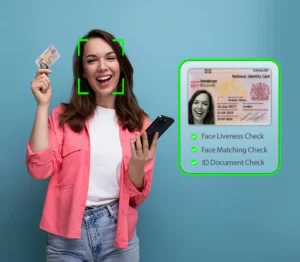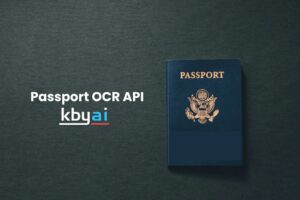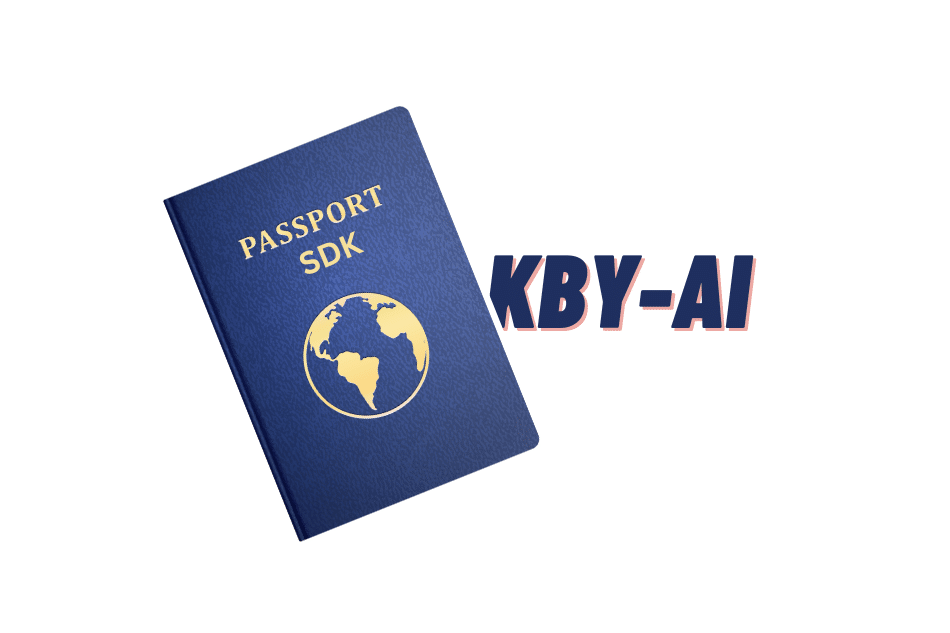A Passport Recognition SDK is a software toolkit designed to read and verify passport data. It automates the extraction of information from passport images.
Passport Recognition Software Development Kits (SDKs) play a pivotal role in travel security and data management. They enable developers to integrate passport reading and authentication features into various applications. By utilizing advanced OCR (Optical Character Recognition) and image processing technologies, these SDKs can quickly and accurately capture and interpret the data from the machine-readable zone (MRZ) of passports.
This functionality is essential for airports, border control agencies, and any business that requires reliable identity verification. With the increasing need for efficient and secure travel processes, Passport Recognition SDKs provide a vital solution that enhances operational effectiveness and improves customer experience.
Understanding Passport Recognition SDK
Importance Of Passport Recognition SDK
In a digital era where security breaches are common, the importance of Passport Recognition SDKs cannot be overstated. They play a critical role in enhancing the security measures of identity verification processes. Employing state-of-the-art algorithms, these SDKs can detect and validate the authenticity of passports in a matter of seconds, thereby reducing the risk of fraud and illegal activities.
Benefits Of Passport Recognition SDK
- Speed: Automates the data entry process, significantly cutting down on processing time.
- Accuracy: Minimizes human error by ensuring precise data extraction from passports.
- Integration: Easily integrates with existing systems, enhancing their capabilities without the need for extensive redevelopment.
- User Experience: Provides a smoother and faster verification process for end-users, leading to increased satisfaction.
Applications Of Passport Recognition SDK
Passport Recognition SDKs are versatile and find applications in numerous fields where identity verification is paramount.In Security And Border Control
Border security is critical for any country’s safety. Passport Recognition SDKs play an indispensable role by enabling quick verification of travel documents, thus bolstering border control measures. They facilitate efficient traveler processing, prevent document forgery, and help maintain international security standards.In Travel And Hospitality Industry
In the fast-paced travel and hospitality sector, Passport Recognition SDKs enhance customer experience by streamlining the check-in process. They allow for instant identity verification, aiding in faster service delivery. Hotels, airlines, and car rental companies leverage this technology to offer seamless services to their clients, reflecting a commitment to innovation and customer care.Technical Aspects Of Passport Recognition SDK
How Passport Recognition SDK Works
A Passport Recognition SDK functions by employing advanced optical character recognition (OCR) and machine learning algorithms. When a passport is scanned or photographed, the SDK analyzes the Machine Readable Zone (MRZ), as well as visual security components. These steps involve:- Pre-processing: Image enhancements remove distortions and improve readability.
- OCR: Converts characters from images into machine-encoded text.
- Pattern recognition: Identifies consistent passport formats and structures.
- Data validation: Checks for data consistency and integrity based on international standards.
Features And Capabilities
Passport Recognition SDKs come with a robust set of features that ensure high efficiency and reliability:| Feature | Description |
|---|---|
| Multi-language support | Recognizes text in multiple languages, catering to international passports. |
| Cross-platform compatibility | Seamless integration with various operating systems and devices. |
| Real-time processing | Fast and efficient data extraction for on-the-spot verification. |
Data Extraction
At the core of Passport Recognition SDK is the capability to extract textual and biometric data accurately. This data includes:- Personal information: Full name, nationality, date of birth, and gender.
- Document details: Passport number, issuing country, and expiration date.
- Biometric identifiers: Photo identification to facilitate facial recognition technologies.
Document Authentication
Beyond data extraction, Passport Recognition SDKs can assess document validity. Utilizing security feature analysis and checksum calculations, they offer critical authentication services that confirm the integrity of the passport presented. These steps help to detect alterations, forgeries, and counterfeits with precision.Compatibility With Different Passport Types
An advanced Passport Recognition SDK adapts to a variety of passport types and booklet designs worldwide. By adhering to the standards set by the International Civil Aviation Organization (ICAO), it ensures broad compatibility, including:- Passports with machine-readable zones (MRZ)
- Electronic passports (ePassports) with embedded chips
- Non-standard travel documents with variations in size and layout
Implementation Of Passport Recognition SDK

Integration Into Existing Systems
Seamless integration serves as the foundation for a successful Passport Recognition SDK deployment. Here are steps to ensure a smooth process:- Assess Compatibility: Verify that the SDK is compatible with your current infrastructure.
- API Connectivity: Utilize the SDK’s APIs to establish robust connections between the passport recognition service and your system’s databases.
- Minimal Disruption: Implement the SDK in a way that requires minimal changes to existing workflows, maintaining operational continuity.
- Develop custom scripts or middleware to bridge the SDK with legacy systems.
- Run a pilot project to test and refine the integration process before full-scale deployment.
User-friendly Interface
Ensuring that the end-user can navigate and utilize the SDK effectively is essential. Consider these- Intuitive Design: Implement a clean and clear interface that guides users through the process without confusion.
- On-screen Instructions: Offer assistance within the interface to reduce the learning curve and enhance the user experience.
- Feedback Mechanism: Provide real-time feedback to users to help correct any errors during data entry or scanning.
Customization Options And Flexibility
The necessity for an SDK that tailors to diverse business requirements cannot be overstated. Flexible customization options include:- Modular Components: Choose from a variety of modules and features to create a personalized solution.
- Adaptable Workflows: Configure the SDK to support specific business processes and user roles.
- Scalable Solutions: Ensure the SDK can grow with your company, adding users and functionality as needed.
- Ability to adjust the recognition engine’s sensitivity and accuracy settings.
- Options for integrating additional data validation or enhancement plugins.
Factors To Consider When Choosing Passport Recognition SDK

Accuracy And Reliability
The cornerstone of any passport recognition SDK is its accuracy and reliability. High precision in data extraction and consistent performance across various passport types and conditions are non-negotiable for any system that deals with critical identity verification. Look for SDKs with advanced OCR (Optical Character Recognition) capabilities, intelligent error-checking algorithms, and the ability to adapt to different passport designs and wear levels. A good metric is the SDK’s performance in various lighting conditions and with passports from numerous regions.Compliance With Industry Standards
Passport recognition involves sensitive personal data, making compliance with international and regional industry standards a top priority. Ensure that the SDK adheres to standards like ICAO Doc 9303, ISO/IEC 7501, and complies with data protection regulations such as GDPR. This compliance not only affirms the SDK’s ability to accurately read biometric passports but also signals its commitment to maintaining data security and privacy.Cost And Licensing Options
Cost effectiveness and flexible licensing options can greatly influence your overall investment in a passport recognition solution. Evaluate the pricing models offered by SDK providers and consider how they align with your budget and scale of operation. Some providers may offer one-time purchase licenses, while others could have subscription-based models or charge based on the volume of passport scans. Keep in mind long-term costs such as updates, maintenance, and customer support when making your decision.Future Trends In Passport Recognition SDK
Advancements In Machine Learning And Ai
The integration of machine learning (ML) and artificial intelligence (AI) into passport recognition SDKs is rapidly transforming the capabilities of these systems. Future developments are linked to several key areas:- Self-learning algorithms that continuously improve recognition accuracy.
- Adaptive systems able to discern intricate patterns and anomalies in passport data.
- Processes that minimize false rejections and false acceptances.
- Speed enhancements for near-instantaneous document verification.
Potential Impact On Travel And Security Industry
The evolution of passport recognition technology bears significant implications for both the travel and security industries. Key potential impacts include:- Enhanced security measures at borders, reducing instances of identity theft and illegal entries.
- Faster processing times at immigration checkpoints leading to shorter queues and improved traveler satisfaction.
- Automated systems that reduce human error and potential for corruption within the document verification process.
- Integration with biometric technologies for a multi-factor authentication approach, combining document validation with face, fingerprint, or iris recognition.
- Consumer applications, such as mobile boarding passes and self-service kiosks, incorporating passport recognition for greater convenience.
Frequently Asked Questions For Passport Recognition SDK
What Is OCR In Passport?
OCR in passports refers to Optical Character Recognition, which digitally extracts and processes the data from the machine-readable zone (MRZ) found on passport pages for efficient information verification.
How Do I Check My Passport Chip?
To check your passport chip, download a suitable passport reader app on your NFC-enabled smartphone. Open the app, and follow the instructions to scan your passport’s photo page. Hold your phone close to the front cover of the passport to read the chip successfully.
How Do I Get A Scanned Copy Of My Passport?
To get a scanned copy of your passport, use a scanner or scanning app and save the digital image to your device. Ensure personal data is secure when sharing the scan.
What Is A Passport Recognition SDK?
A Passport Recognition SDK is a software kit designed to facilitate the integration of passport reading and verification functionalities into applications. It includes pre-built functions for scanning, processing, and extracting data from passports reliably and efficiently.
Conclusion
Navigating the digital landscape requires robust tools like passport recognition SDKs. They streamline identity verification, enhancing both security and user experience. As businesses and services globalize, these SDKs become indispensable. Embrace the technological edge they offer — the future is seamless integration.
Stay ahead; choose the right SDK today.


